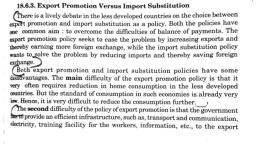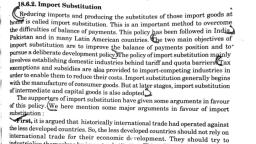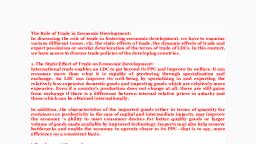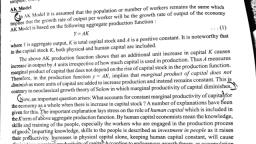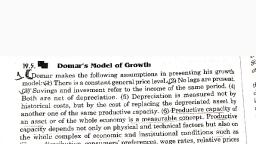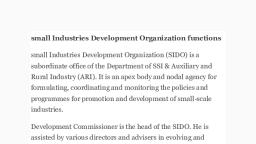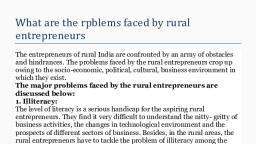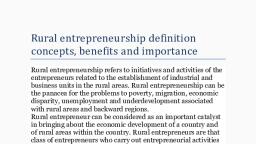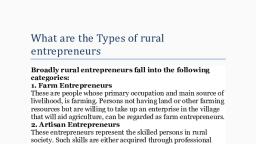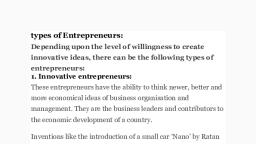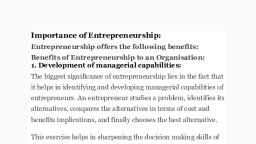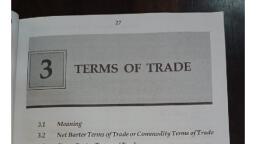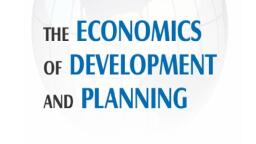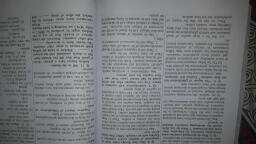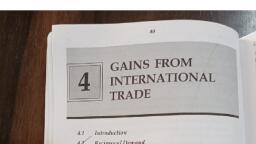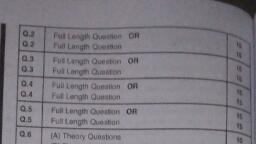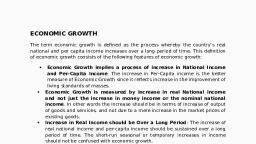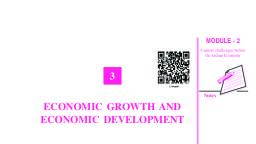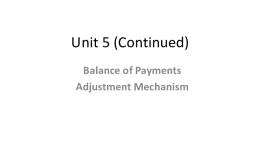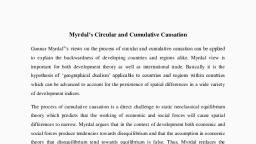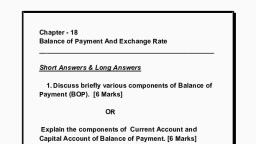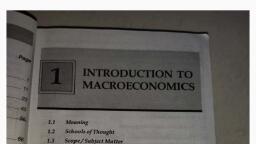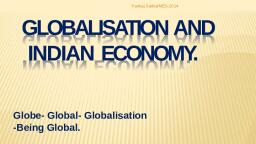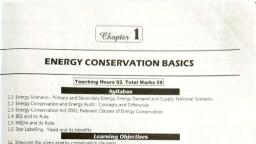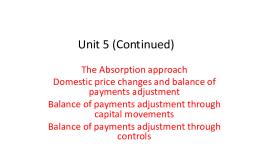Page 1 :
TERMS OF TRADE, , 64 torn of Trade and Underdeveloped Countries : Prebisch-Singer, , Economists like Prebisch and Singer argue that the terms of trade in the, Jong 10 have been moving against the primary products and in favour of the, manufactured articles. Now, underdeveloped countries are the exporters of, primary products while developed countries are the exporters of the, manufactured articles. Thus, Prebisch and Singer contend that in the process, of international trade, terms of trae move against underdeveloped countries, and in favour of developed countries. This is popularly known as Prebisch-Singer, thesis., , In This respect. the British experience shows that from the early eighteenth, to the middle of nineteenth century price moved against manufactured articles., This trend continued up to 1870's. However, after that, during 1870-1930, there, has been a secular downward trend in the prices of primary goods relative to, the prices of manutactured goods. Some modern researchers also conclude that, the terms of trade have gone against underdeveloped countries., , isch has tried to explain this deterioration in the terms of trade in the, following manner. In developed countries (centre), the income of the, entrepreneurs and productive forces rise relatively more than productivity, whereas in less developed countries (periphery) the increase in income is less, than that in productivity. This is known as centre-periphery theory. The, developed countries have gained in the form of higher wages and profits by, exporting manufactured articles to the less developed countries at higher prices., But the gains in food and raw material production in less developed countries, have been dissipated in price reductions thereby again benefiting developed, countries. The operation of Engel’s law has been a major factor behind this, price differential. As income rises, demand for food rises more slowly than the, demand for manufactured articles. Further, due to technical progress in, , manufacturing, use of raw materials per unit of output falls. So the demand for, raw materials also falls. This fall in demand along with low price elasticity of, food results in large price falls. At the same, , demand for both raw materials and, time, short run supply is inelastic and also erratic due to natural factors. Hence,, able. Thus the developed countries have, , prices are very much volatile and unst:, enjoyed cumulative benefits in this dual capacity as consumers of imported food, ice and as producers of high-priced exportable, , and raw materials at low pri, manuactured articles. On the other hand, less developed countries suffer both, as producers of low-priced food and raw materials and as consumers of high, priced imporjed manufactures. This is the Prebisch-Singer thesis,, Howeve' nomists have severely criticised the Prebisch-Singer thesis., Their arguments may be summarised as follows :, \ The thesis is based on the trends in British terms of trade during 1870930. It cannot be the representative for the whole world., The terms of trade index of Prebisch does not take into account quality, , hanges in the products and the new products., ) The studies of Kindleberger, Lipsey and Haberler show that the thesis, , of deterioration in terms of trade may not ‘necessarily’ hold good.
Page 2 :
Meg |, , It is not correct to identify the primary-oxporting countria |, underdeveloped countries. Developed economics like, Australia and New, Materials, , (5) According to Fredie Mehta, the, determinants of oconomic dev, not been passed on to the, , A Ay, the Us 4, Zealand export a huge amount of food and raw, , terms of trade are not the most important, clopment. Though gains from trade have, underdeveloped countries in the form of low, Priced manufactures, yet they have been passed on to them in th, of Product improvement, product inventions and product diversifi, Despite these criticisms, it may be mentioned that Prebisch thesis enjoys, empincal support. The thesis has been supported by some other studies. For, Sample: an IMF Survey of 1982 for 32 primary commodities exported by the, less developed countries shows that between 1957 and 1982 the terms of trade, of Pnmary exports of le:, , ss developed countries declined by 32%. Similar idea, , Kay separately argue, xploited by developed, , ‘e forms, cations,, , "ene an unequal exchange against poor countries a, @ reasons for t], , ike his tendency of terms of trade being unfavourable to the, less lev eloped countries in comparison to advanced countries are not far to, seek. We may menti, , ¢ 10n some comprehensible reasons for such a phenomenon., —-T. High cost ratios : As compared to developed countries, less developed, countries have higher production cost due to low prod, , of production., , uctivity of various factors, , . ckward technology : In underdeveloped countries, technology is, , backward. Traditional and age-old techniques of production are in vogue. This, again raises the cost of production. Asa ri, , S esult, underdeveloped countries have, weak bargaining power. Hence, terms of trade go against them., , E i products : We have already mentioned that underdeveloped, countries generally export primary products. Demand for such products is, , inelastic with respect to both price and income. As their demand is inelastic, with respect to price, when their supply rises, price falls at a greater rate than :, quantity. Again, as the demand for primary goods is income inelastic, demand, for such goods does not rise very greatly in the world market. As a result, price, , of pri products relative to industrial products does not rise, rather it falls,, s i Greater dependency : Underdeveloped countries are highly dependent, , on advanced countries for capital goods and equipments and also for various, essential manufacturing products. This again reduces their bargaining capacity., In fact, more often than not, they have to trade with the advanced nations at, the terms dictated by the latters. This fact also explains why terms of trade go, i ss developed countries., , it of adaptability : Economic structure of the advanced countries is, relatively more flexible than that of underdeveloped countries. Hence they can, quickly adapt the production of such goods which are high in demand and whose, prices are rising fastJBut underdeveloped countries cannot adapt the ome, of new goods quickly. This is due to their backward immobility and, above a, their rigid economic structure. As a result, when prices of manufactured goo on, rise at a faster rate while prices of agricultural goods rise very slowly or rema, , |, , ent

